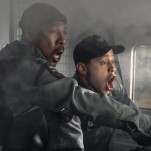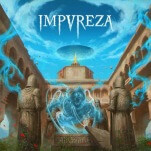Sufjan Stevens’ Mastery of the Moment on Carrie & Lowell
There are those who disagree, but I prefer the version of Sufjan Stevens that is stripped-down, raw, nakedly emotional. I’m willing to admit that it might be as simple as a failure to appreciate the technical skill apparent in an album like Age of Adz—I’m not a musician, and even after reading about the effort and ability that go into creating something so intricate, the achievement will only resonate for me on an intellectual level. It won’t reach me the same way that a simpler track like “Flint” will, with its relatively bare production and classic melody. And while I love the swelling choruses and instrumental interludes on Illinois, I find them most affecting when they exist in contrast to the breakdown—the moment when everything stops, and Sufjan’s voice emerges accompanied by just one or two instruments, to confess.
It’s a bit like the difference between “clever” and “funny.” It’s possible for me to appreciate a writer who weaves layers of irony into a text, or a comedian who can point out the absurdities in some political policy, but there’s no guarantee that it will make me laugh—that involves something more elemental and unpredictable. (As an example—I loved this 15-minute bit from the Australian comedian Jim Jefferies on gun control in America, but the part that made me laugh hardest was a throwaway joke about a thesaurus and a dictionary…start at the 9:20 mark to see what I mean.)
There are moments that stagger you for reasons that are buried deep within your psyche, and were perhaps spawned in forgotten childhood hours, or were always there in the chemicals and synapses of your brain. Even at his simplest, Sufjan Stevens is more complex than the vast majority musicians—he is a legitimate genius (at least I think so), and even his transparent songs contain a confluence of creative material that is difficult to identify, much less analyze—but the version of the artist that touches me is the one we see on Carrie & Lowell. I won’t pretend to be right or wrong, but this is an album that produces a sensation of lightness in my head, and the rush of feeling that follows.
There is nobody who can change the mood of a song, within a song, like Sufjan. The famous example is Come On! Feel the Illinoise!, where the first half is a pepped-up tribute to the Colombian Exposition and the city of Chicago itself, and an instrumental bridge gradually dampens the mood for the more personal second half, which Sufjan begins by singing, “I cried myself to sleep last night.” On Carrie & Lowell’s second track, “Should Have Known Better,” we see the same division. In this case, a synthesizer separates the two halves, as it did on Predatory Wasps of the Palisades, but the subtle change here introduces a redemptive theme. Lyrically, the dismal sense of loss persists at first (“nothing can be changed, the past is still the past”), but it gives way to hope—”my brother had a daughter..the beauty that she brings, illumination”—as Sufjan is joined by background singers. The hope is not completely ascendant; there is more ambiguity in this album than any of his past works, and his mother’s death haunts every song. But there is a sense of striving—of forcing himself to cope through the misery.
-

-

-

-

-

-

-

-

-

-

-

-

-

-

-

-

-

-

-

-

-

-

-

-

-

-

-

-

-

-

-

-

-

-

-

-

-

-

-

-








































